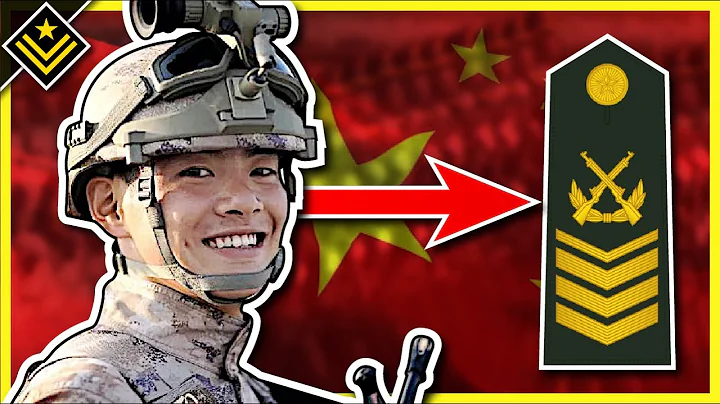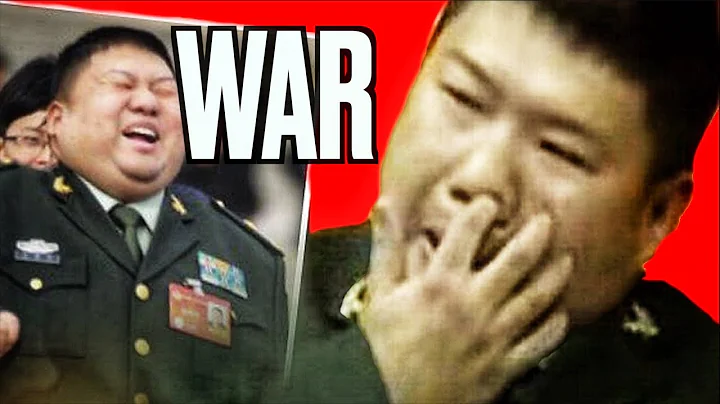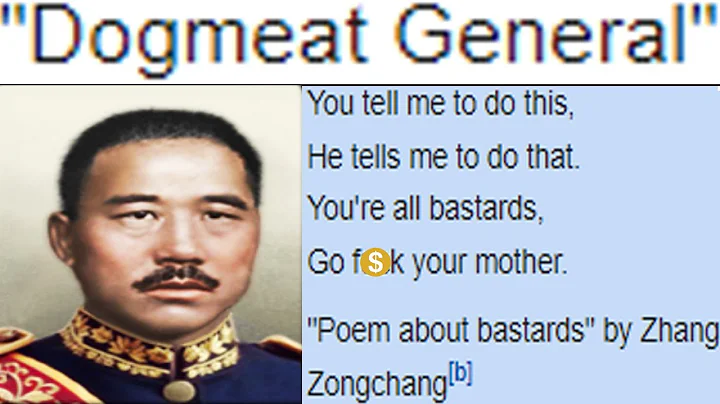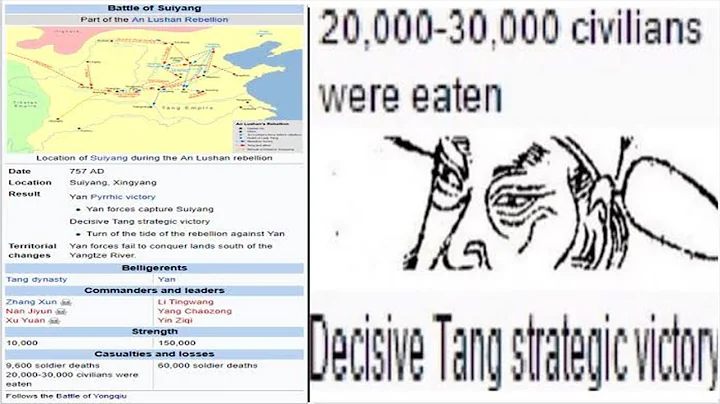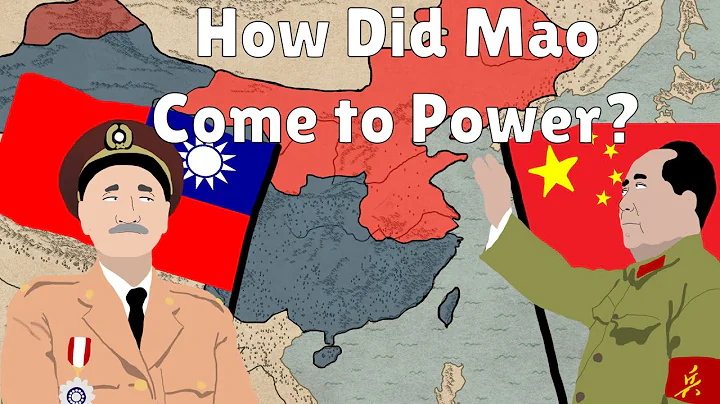If you look at Mr. Zhu’s highest military positions in various periods, you will know why he is the top marshal!
Zhu De ranked first among the top ten marshals when he was awarded the title in 1955. This is undisputed. But why he ranks first among marshals, many military fans are still not sure. Today we will analyze the highest military positions held by Marshal Zhu De in various historical periods. After reading this, you will understand that no one can compete with him in military positions. He is well-deserved for being the first marshal.

Mao Zedong and Zhu De
The twists and turns of joining the party experience
From high-ranking warlord officials to Communist Party members, Mr. Zhu's tenacity began in Berlin.
Before joining the revolution, Zhu De was already a high-ranking warlord official. He served as the brigade commander of the mixed brigade of the Yunnan National Guard Army, with the rank of major general; in 1921, he had served as the commander of the Yunnan Army Gendarmerie Headquarters, the Yunnan Provincial Police Commissioner and the Police Department. A long job.
But Zhu De wanted to find the truth about saving the country and the people, so he decided to give up the high official and generous salary he already had. He once went to Beijing to find Li Dazhao, but unfortunately Li Dali was out of town at the time. Later he went to find Sun Yat-sen, who admired him very much. However, Zhu De felt that Sun Yat-sen's approach was to "support one warlord to fight another warlord" and felt that there was no future. , so he abandoned it.
Later, Zhu De found Chen Duxiu in Shanghai and asked to join the Communist Party of China, but Chen Duxiu declined. In Chen Duxiu's view, Zhu De was a senior official of the warlord, so it was more appropriate to stay outside the party.
Zhu De was very depressed, so he came to Germany with his friend Sun Bingwen (the father of Sun Weishi). In Berlin, he met Zhou Enlai, who was 12 years younger than him. With the introduction of Zhou Enlai and Zhang Shenfu, he joined the party as he wished. The year was 1922. The new Communist Party of China was just one year old. Zhu De was the first among the ten marshals to join the party, but he was already 36 years old that year!

Mao Zedong awarded Zhu De a medal
Nanchang Uprising
Mr. Zhu’s contribution to the Nanchang Uprising was crucial, which was often ignored by many military fans in the past.
During the Nanchang Uprising, Zhu De's position was not the highest.
In the National Revolutionary Army, He Long, Ye Ting, Ye Jianying, Nie Rongzhen, Liu Bocheng and other positions were no lower than Zhu De's. In particular, He Long and Ye Ting were two powerful figures in the army at that time. He Long alone had three divisions under his command. . At that time, Zhu De served as the director of the Nanchang Public Security Bureau and the head of the 3rd Army Officer Training Corps. He had only a few hundred men under his command, most of whom were not regular troops.
Therefore, Zhu De initially played a relatively marginalized role in the uprising. First, he used his social status and influence to invite enemy leaders to the "Hongmen Banquet" and detain them. During the uprising, the enemy troops were leaderless, which was greatly convenient. After that, on the way to Guangdong, Zhu De was either in the rear or in the vanguard, serving as both a propaganda team and a logistics team.
Later, Zhu De was appointed deputy commander of the 9th Army (in fact, Zhu De did not have his own troops at this time), and blocked the superior enemy troops of the Kuomintang Qian Dajun's department in Sanheba. Zhu De lived up to everyone's high expectations. He held the powerful enemy at Sanheba for three days with extremely thin troops. Zhu De's commanding ability is evident.

Young Zhu De
If you think this is Zhu De's role in the Nanchang Uprising, you would be underestimating Zhu De. His real role lies later.
After the fierce battle at Sanheba, Zhu De checked the remaining soldiers and found that only about half, or 2,000, were left. At this time, more unfavorable news came. The main force of the rebel army had encountered a strong enemy on its way south and had failed. The leaders of the uprising also went into hiding. Zhu De suddenly felt the weight of the burden on his shoulders. These people under him were the only remaining strength of the uprising!
At this time, the future was very pessimistic. Everyone did not know where to go. They had no money, no food, no direction, and the team was in danger of collapse. People in the army deserted their posts every day. At the worst time, only Zhu De, Wang Erzhuo and Chen Yi were left among the entire army cadres above the regiment level. At the critical moment, Zhu De, with the assistance of Chen Yi, raised his voice and reorganized the uprising troops, dismissed those who were not determined, and strengthened their combat effectiveness. The remaining more than 800 people continued to fight. The first army went to Yizhang, Hunan to carry out the Shonan Uprising, and then Zhu De led his troops to Jinggangshan to join forces with Mao Zedong.
This was Zhu De's greatest contribution to the Nanchang Uprising. He preserved the most precious revolutionary fire and never extinguished it again. Among the more than 800 people, in addition to Marshals Zhu De and Chen Yi, there were also Marshal Lin Biao and General Su Yu. If it weren't for him, Chen Yi and others, the Nanchang Uprising might have completely failed.

Mao Zedong and Zhu De on the Tiananmen Gate
Jinggangshan Years
In Jinggangshan, Zhu De became the "Father of the Red Army". This alone should be enough to convince the majority of military fans.
After joining forces in Jinggangshan, Mao Zedong, Zhu De and Chen Yi were collectively known as the "Three Giants of Jinggangshan". Zhu De and Mao Zedong also began their revolutionary friendship that lasted for nearly half a century until their deaths in the eventful autumn of 1976.
Zhu De and Mao Zedong were called "Zhu Mao". At that time, many people mistakenly thought they were the same person. In the decades that followed, except for a year of separation on the Long March, the two were never separated again.
According to the recollections of the old revolutionary Tan Zhenlin, after Mao Zedong led the remnants of the Autumn Harvest Uprising on the Hunan-Kiangxi border to Jinggangshan, they faced heavy siege by the enemy and it was very difficult. Zhu De's coming up the mountain was also a great support for Mao Zedong. Without the Nanchang Uprising troops brought by Zhu De and Chen Yi, it is difficult to say whether the remaining troops of Mao Zedong's Autumn Harvest Uprising could gain a foothold in Jinggangshan.
After Zhu Mao joined forces, the first Red Army team was established.

Marshals Peng Dehuai and Zhu De
The troops of Mao Zedong's Autumn Harvest Uprising and the Nanchang Uprising led by Zhu De were jointly organized into the 4th Army of the Workers' and Peasants' Revolutionary Army. Zhu De was appointed as the commander of the army, Mao Zedong was appointed as the party representative, and Wang Erzhuo was appointed as the chief of staff. , under the jurisdiction of three divisions, with Mao Zedong, Zhu De and Chen Yi as division commanders.
Soon the Fourth Army held its first Party Congress and elected the Fourth Army Military Commission, with Mao Zedong as secretary.
html On May 25, according to the requirements of the Central Committee of the Communist Party of China, the workers' and peasants' revolutionary armies across the country were unified into the Chinese Workers' and Peasants' Red Army. Zhu Mao's 4th Army of the Workers' and Peasants' Revolutionary Army was also reorganized into the 4th Army of the Chinese Workers' and Peasants' Red Army, referred to as the "Red 4th Army". The 4th Red Army is the first Red Army team in the country. Zhu De, like Mao Zedong, is the founder of the Red Army, and Zhu De can be called the "father of the Red Army". The reason whyis called the 4th Army is not in the chronological order of its establishment. Zhu De recalled: "The reason why the Fourth Army was used is to maintain the name of the Fourth Army's 'Iron Army' during the Northern Expedition. This was the bastion of our revolution during the Great Revolution."
Many military fans are confused about the "First Army" The question of why the Red Army is called the Fourth Red Army has now been completely solved.

Marshals He Long, Xu Xiangqian and Zhu De
Central Soviet Area and Long March Road
In the Central Soviet Area, Zhu De became the Commander-in-Chief of the Red Army, establishing his status as "Chief Marshal".
After the Jinggangshan Revolution, Mao Zedong, Zhu De and others led their troops into southern Jiangxi and western Fujian, creating the Central Soviet Area, which had a profound influence on the history of the revolution, and established a government of the workers and peasants: the Chinese Soviet Republic, with its capital located in Ruijin in southern Jiangxi. —This was the first red capital and revolutionary shrine. Zhu De's partner Mao Zedong was elected "Chairman of the State", and the name "Chairman Mao" spread from that time on. .
In August 1930, Zhu De served as commander-in-chief of the Chinese Red Front Army. The First Red Army was the Central Red Army. Because later the Provisional Central Committee of the Communist Party of China, the Central Government and the Central Military Commission were all in the Central Soviet Area, the First Red Army was called the Central Red Army in many materials. Documents issued from the Central Committee and the changes in this Red Army team From time to time, it is called the Central Red Army, and sometimes it is called the First Red Army.
Soon after, Zhu De was appointed Commander-in-Chief of the Chinese Workers' and Peasants' Red Army and Commander-in-Chief of the Red Front Army .From then on, Zhu De became the highest military officer of the People's Armed Forces. His identity never changed until the 1954 Constitution was passed and the post of commander-in-chief was no longer established.
At this point, Zhu De completed his magnificent transformation from a high-ranking official of the old warlord to the commander-in-chief of the people's armed forces.

Marshal He Long, Marshal Zhu De and Chairman Mao Zedong
In November 1931, Zhu De was elected chairman of the Central Revolutionary Military Commission (i.e. Chairman of the Central Revolutionary Military Commission).
In the autumn of 1934, the main force of the Central Red Army left Ruijin, the red capital, and began its Western Expedition. The Long March that attracted worldwide attention began. Throughout the Long March, as Chairman of the Central Revolutionary Military Commission and Commander-in-Chief of the Red Army, Zhu De adhered to the correct military line, supported Mao Zedong's return to military command, and fought unremittingly against putschism and separatism. His contribution was obviously higher than that of other senior generals. On this point, military fans who are dissatisfied can come and start a debate.
At the "Zunyi Conference", Zhu De supported Mao Zedong's correct military proposition; after the Central Red Army and the Fourth Red Army joined forces, Zhu De insisted on the unification of the Red Army; subsequently, Zhu De acted with the Fourth Red Army. He was more powerful than Mao Zedong, Zhou Enlai, Bo Gu, Zhang Wentian and Wang Jiaxiang. The leader walked an extra year on the Long March, crossing grasslands three times and climbing snow-capped mountains three times. He walked a full 10,000 miles more than other leaders of the Central Red Army!

Zhu De and Mao Zedong, Zhou Enlai and other leaders
War of Resistance War
Zhu De once again served as the Commander-in-Chief of the People's Armed Forces during the Anti-Japanese War, which increased his weight as the head marshal.
On July 7, 1937, the Japanese invaders launched the "Marco Bridge Incident" and began a full-scale invasion of China. The next day, the Central Committee of the Communist Party of China issued an appeal: "Beijing and Tianjin are in danger, North China is in danger, and the Chinese nation is in danger", calling on the people across the country to rise up and fight to save the nation from peril.
On August 22, 1937, the Military Commission of the Nationalist Government announced that the main force of the Red Army in northern Shaanxi was reorganized into the Eighth Route Army of the National Revolutionary Army.
Three days later, the Central Committee of the Communist Party of China issued an order to reorganize the three main forces of the Red Army into the Eighth Route Army of the National Revolutionary Army, with Zhu De as commander in chief and Peng Dehuai as deputy commander in chief.
On September 11, the Military Commission of the Nationalist Government issued an order to rename the Eighth Route Army to the 18th Group Army of the National Revolutionary Army. Zhu De was appointed commander-in-chief and Peng Dehuai was appointed deputy commander-in-chief.

Zhu De and others in front of the cave dwelling
Although the name of the army was changed from the Eighth Route Army to the Eighteenth Army, the special name "Eighth Route Army" was still used, and even the word "Eighth Route" has been used by the people as a synonym for the anti-Japanese armed forces.
The Eighth Route Army has three divisions, each with one chief and one deputy commander. The six division commanders were all the most powerful figures at the time: Lin Biao, commander of the 115th Division of the Eighth Route Army, and Nie Rongzhen, deputy commander; He Long, deputy commander of the 120th Division; Xiao Ke, deputy commander; and Xiao Ke, the commander of the 129th Division. Liu Bocheng, deputy division commander Xu Xiangqian - among the six commanders, five marshals emerged. The only one who did not become a marshal also became the head of the generals - the rate of being awarded marshals is really high!
Backbone anti-Japanese areas such as the famous Shanxi-Chahar-Hebei Anti-Japanese Base Area, Shandong Base Area, and Shanxi-Hebei-Luyu Base Area were gradually formed, which had a profound impact on the future direction of the war and the process of the Liberation War.
And all of this was accomplished under the leadership of Chairman Mao Zedong and Commander-in-Chief Zhu De.

Zhu De on the Tiananmen Gate
Liberation
Interestingly, although Zhu De was the Commander-in-Chief of the People's Liberation Army, this appointment was not announced until the day of the founding of New China - but this did not affect Mr. Zhu's weight as the "First Marshal"!
After the victory of the Anti-Japanese War, efforts for peace failed. In the summer of 1946, Li Xiannian led his army to "break through the Central Plains" and the Liberation War broke out. 9 On September 12, "Liberation Daily" was the first to use the title "People's Liberation Army".
The various troops in the liberated areas were gradually renamed the People's Liberation Army from the Eighth Route Army, New Fourth Army, Northeast Democratic Alliance Army, etc., and gradually formed the four major field armies and regular armies such as the North China Military Region Field Force.
On November 28, the Central Committee of the Communist Party of China publicly called Zhu De the commander-in-chief of the People's Liberation Army in a message to Zhu De's 60th birthday.
The People's Liberation Army officially replaced the 18th Army on March 24, 1947, but the headquarters staff were still the same as the previous 18th Army headquarters, that is, Zhu De was the commander-in-chief and Peng Dehuai was the deputy commander-in-chief. Both of them were also Vice Chairman of the Central Military Commission.

Zhu De and his wife Kang Keqing
But until the eve of the founding of New China, there was no official document appointing Zhu De as the commander-in-chief of the People's Liberation Army.
On October 1, 1949, a few hours before the founding ceremony of the People's Republic of China, the Central People's Government Committee held its first meeting in Beijing.
The meeting appointed Mao Zedong as chairman of the People's Revolutionary Military Commission of the Central People's Government, Zhu De as commander-in-chief of the Chinese People's Liberation Army. This is the first official appointment of Zhu De as commander-in-chief of the Chinese People's Liberation Army. Zhu De also served as Vice Chairman of the Central People's Government and Vice Chairman of the People's Revolutionary Military Commission - that is to say, Zhu De was not appointed Commander-in-Chief of the People's Liberation Army until the day of the founding of New China!

Top ten marshals
Major titles
Red Commander Zhu De, the number one marshal in the eyes of military fans!
In 1955, the Central Military Commission conferred major titles on the entire army. A total of ten senior generals with outstanding merits were awarded the rank of marshal:
Commander-in-Chief of the People's Armed Forces Zhu De, Deputy Commander-in-Chief and Commander of the First Field Army Peng Dehuai, Commander of the Fourth Field Army Lin Biao , Commander of the Second Field Army Liu Bocheng, Commander of the Jinsui Military Region He Long, Commander of the Third Field Army Chen Yi, Political Commissar of the Fourth Field Army Luo Ronghuan, Deputy Commander of the North China Military Region Xu Xiangqian, Commander of the North China Military Region Nie Rongzhen and Director of the Central Post-Process Committee Ye Jianying.
Zhu De ranks first among the ten marshals. He is a veritable "Red Commander" and the father of the people's armed forces. He has long served as the highest military officer in the army, from the commander-in-chief of the Red Army, to the commander-in-chief of the Eighth Route Army, to the commander-in-chief of the People's Liberation Army, and the Chinese Revolutionary Army. Chairman of the Military Commission and Vice Chairman of the Central Military Commission, this is unique in the military. No one can have this honor. If we look at the highest military positions that Zhu De held in various eras, we will know why he is the top ten marshals!

The Four Great Men: Zhu De, Zhou Enlai, Mao Zedong and Liu Shaoqi
